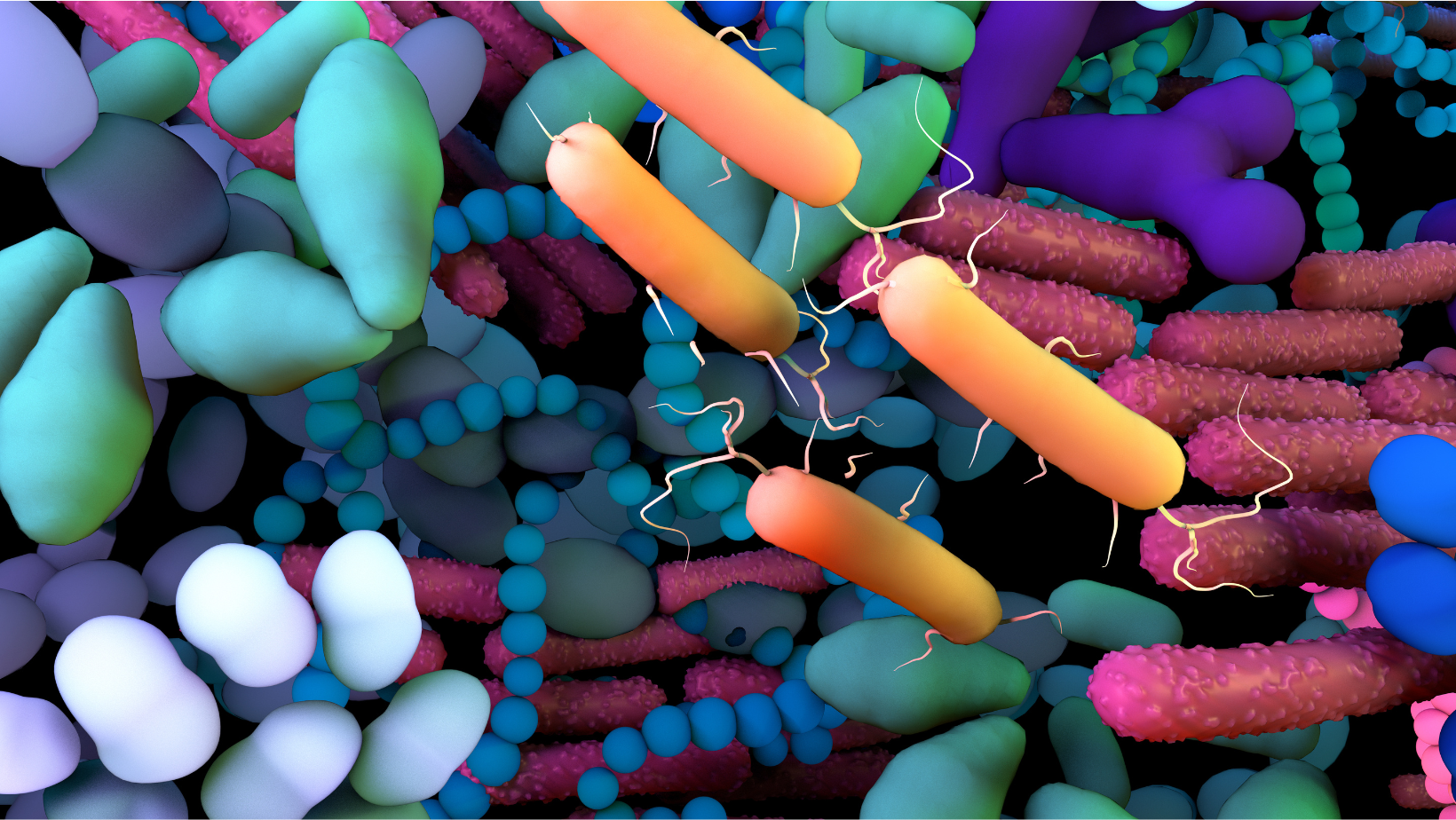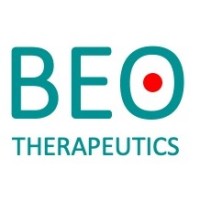
Advances in gene sequencing technology and computational power are giving researchers and healthcare professionals an increasingly detailed view of how the human microbiome works. It is creating new opportunities for startups.
Every month, new technologies are discovered and new startups are formed. Last year we brought you the most exciting startups emerging in the field (check them out here). Now we have updated the list for 2024.
Register to read the full report

So, here are twelve more microbiome startups that are changing the game:

Pendulum Therapeutics
Based in: US
Founded: 2013
Funding to date: $111m
US-based Pendulum Therapeutics develops probiotics that target the human microbiome to help patients suffering from diseases such as diabetes. The probiotics are formulated from bacterial strains that stimulate GLP-1 production, which controls metabolic rate and weight loss.
These probiotics also control glucose levels, gut function and support a healthy weight.
Pendulum Therapeutics was founded in 2013 by chief executive Colleen Cutcliffe and John Eid. Cutcliffe is also on the leadership board of the American Diabetes Association and is the chair of the board of directors at California Life Sciences Institute (CLSI). She spent four years at Pacific Biosciences, a US-based biotechnology company where she was a manager of enzyme discovery and senior manager of biology.
The startup has raised $111m in funding, and in June 2023 it raised $10m from New Zealand-based dairy company Fonterra. Other notable investors include healthcare company Mayo Clinic and venture capital firms Khosla Ventures and True Ventures.

Alba Health
Based in: Sweden
Founded: 2022
Funding to date: $2.5m
Sweden-based startup Alba Health provides digital gut health support for children.
The company’s digital platform that uses microbiome testing provides insights into gut health, providing support for symptoms for colic, sleep disruption as well as later life conditions such as asthma and allergies.
Elenora Cavani, chief executive and Emeritus Willem M de Vos founded the startup in 2022. Cavani spent five years at Boston Consulting Group as a project leader and consultant. She also spent a year as an R&D member for ideation and prototyping at Leo Pharma.
Alba Health has raised $2.5m in total funding. In 2023, the company secured $2m in a pre-seed funding round led by Voima Ventures. Other venture capital firms participated including Octopus Ventures, Joyance Partners and Noaber Bust VC.

Bac3Gel
Based in: Portugal
Founded: 2020
Funding to date: $1.7m
Bac3Gel is a biotechnological firm that produces cultured microorganisms through 3D substrates and mucus models.
The production of these human mucus technologies can recreate gut, lung, vaginal and stomach microbiota. The production of these organisms generates infections in vitro to discover and test the efficacy of new antibiotics in a high throughput and reproducible manner.
The company is a spinout of Polytechnic University of Milan, University of Pavia and University of Turin.
The Portugal-based spinout was founded in 2020 by Daniela Pacheco, chief technology officer and Sebastião van Uden, chief executive. Uden was a PhD student and ESR Marie Curie Fellow for three years at Bioengineering Laboratories, a Cantu-based medical equipment manufacturing company and was a Master’s researcher for two years at University of Minho’s 3B’s Research Group.
Bac3Gel has raised $1.7m in total funding. Investors in the company include EIT Health, a European healthcare-focused accelerator and the European Innovation Council through its investment fund EIC Fund.

FOR GCV SUBSCRIBERS:
Find out which corporates most actively invest in microbiome startups.

Beo Therapeutics
Based in: Switzerland
Founded: 2019
Funding to date: N/A
Beo Therapeutics is a Switzerland-based developer of microbiome therapies that treat hyperuricemia, a condition where there is high levels of uric acid in the blood and metabolic diseases.
The company’s product, which comes in pill form, works with a small amount of human gut bacteria that are considered safe for human consumption and balances the gut microbiome and urate metabolism which provides patients with relief for gouty arthritis and balances uric levels in the blood.
The startup was founded by Rikke Nielsen, chief executive in 2019. Nielsen has acquired more than 15 years of experience in the pharmaceutical and food supplement sector having worked for Denmark-based multinational pharmaceutical company Novo Nordisk and Denmark-based bioscience company Chr-Hansen.
Beo Therapeutics’ total funding has not been disclosed. In 2020, the company received investment from Business Angels Switzerland, a non-profit association that supports young entrepreneurs.

BioMed Technology Holdings
Based in: China
Founded: 2018
Funding to date: N/A
BioMed Technology Holdings focuses on probiotics for adults and children to solve problems around allergies, detoxification, emotional stress and weight loss.
The startup specialises in microbiome research and development to help maintain gut health for wellness. This is done through microbiome DNA testing, tailor-made probiotic products and dietary recommendations.
BioMed Technology Holdings was founded in 2018 by Stephen Tsui, principal consultant, Vincent Tsang, chief executive and Steven Loo, a medical doctor. Tsang worked in the electronic communication industry for 20 years. He also founded Proactive Technology, a telecommunication technology developer which was listed on Hong Kong GEM in 2000.
Its total funding has not been disclosed. In 2023, BioMed Technology Holdings raised $2m in a seed round from Alibaba’s Hong Kong Entrepreneurs Fund as well as Gobi Partners and The International Medical Co.

BoobyBiome
Based in: UK
Founded: 2019
Funding to date: $2m
BoobyBiome is a UK-based startup that develops probiotic supplements for babies that are born prematurely. The company is developing formula milk probiotics that can act as a substitute for breast milk, allowing babies to consume important bacteria found in breast milk.
The probiotics will support infant gut health and immune systems.
The startup was founded in 2019 by an all-female team of scientists. The founders include Lydia Mapstone, chief executive, Sioned Jones, chief operations officer and Tara O’Driscoll chief technology officer. Mapstone has a doctorate in synthetic biology having completed research in superfood Spirulina.
BoobyBiome has raised $2m in total funding. In 2022, the company raised $1.6m in a pre-seed round with investors including Innovate UK, Biomedical Catalyst and biotechnology company aTen Therapeutics.

Digbi Health
Based in: US
Founded: 2018
Funding to date: $8.5m
Digbi Health is a US-based digital therapeutics company that offers a gut microbiome, genetics-based virtual care platform for people struggling with polychronic mental and physical illnesses associated with weight.
The company develops precision nutrition, lifestyle guidance and microbial prebiotics and probiotics to help manage health issues associated with weight.
Digbi Health was founded by Ranjan Sinha, chief executive and Scott Levy, chief business development officer. Sinha was an executive director for three years at Topgrading and was a co-founder and chief executive for three years at MyParichay.
Digbi Health has raised $8.5m in funding. In 2021, the company raised $5.4m in a series A round led by Accel with participation from Seraph Venture, Ocean Azul Partners and Wisdom.

Exeliom Biosciences
Based in: France
Founded: 2016
Funding to date: N/A
France-based startup Exeliom Biosciences produces single bacterial strain drug candidates that deliver first-in-class microbiome-based therapeutics.
The company aims to provide innovative treatment for inflammatory bowel diseases, cancer and infectious diseases.
Exeliom Biosciences was founded by Harry Sokol, Phillippe Langella and Patrick Gervais in 2016. Sokol is a professor of gastroenterology at AP-HP, a France-based university hospital under Great Paris University Hospitals. He is also a coordinator for the Paris Center for Microbiome Medicine, where he conducts research into intestinal microbiota.
The company’s total funding has not been disclosed. In July 2023, Exeliom Biosciences raised $26m in a series A round led by CE Ventures, the corporate venture arm of UAE-based multinational company Crescent Enterprises. Independent pharmaceutical company Biocodex also participated in the round. Other investors include venture capital firms Auriga Partners and UI Investissement.

LyteGro
Based in: UK
Founded: 2015
Funding to date: $2.2m
LyteGro is a UK-based supplier of microbial growth enhancers to the chemical, diagnostic, pharmaceutical and food industries.
The company is turning wasted bananas into a product called Baclyte, which is a novel, highly potent microbial growth enhancer technology that can be added to existing products to improve fermentation and promote sustainable solutions. Their product Bananaboost is a probiotic that can be used in fermented food industries.
Andrew Lee, chief executive founded LyteGro in 2015. He was the commercial director of the bioengineering company Born Maverick and he was a director of cleantech solutions for two years in Innovo, an environmental services company.
LyteGro has raised $2.2m in funding. The company has been backed by Innovate UK as well as angel investors including Paul Finch.

Pluton Biosciences
Based in: US
Founded in: 2017
Funding to date: $24.2m
US-based company Pluton Biosciences is a platform that researches and discovers microbes for creating several products in the fields of pesticides and pharmaceuticals.
Pluton Biosciences mines and clones microbes to generate biopesticides, products for crop protection and human health. This will help researchers discover new ways to use bacteria for manufacturing all-natural bioproducts.
The company was founded in 2017 by Bary Goldman, chief scientific officer. He has published over 30 peer-reviewed studies in microbial testing. He earned a Bachelor of Science degree in Botany from University of Washington.
Pluton Biosciences has raised $24.2m in total funding. In May 2023, the company raised $16.5m in a series A round led by Illumina Ventures, the corporate venture arm of US-based biotechnology company Illumina. Other investors include RA Capital, Fall Line Capital and First In Ventures.

Treat Therapeutics
Based in: UK
Founded: 2021
Funding to date: N/A
Treat Therapeutics focuses on improving the gut microbiome health of dogs. The UK-based startup collects small stool samples which are used to analyse the dog microbiome. Based on the results, dog owners can buy Treat Therapeutics’ probiotics that can lead to disease prevention, nutritional boosts and balancing of gut health.
Emmanuel Harel, chief executive and Catherine Brown, chief operations officer founded Treat Therapeutics in 2021. Harel was a data scientist for several months at Amili, a Singapore-based precision gut microbiome company and he was a data analyst for Israel-based software development company InnerEye.
Treat Therapeutics’ total funding has not been disclosed. In addition, the company has yet to disclose its investors.

veMico
Based in: UK
Founded: 2018
Funding to date: $33.3m
VeMico is a microbiome startup that is developing a novel class of gut-bacteria-focused cosmetics.
The UK-based startup product Y Skin is a nutricosmetic that contains Bifidobacteria which is extracted from the human gut microbiome. It improves skin conditions by improving gastrointestinal inflammation and hormonal imbalances. The company’s AI platform also responds to anti-aging, dieting and stress control.
VeMico was founded in 2018 by chief executive Jelena Vulevic and chief technology officer George Tzortzis. Vulevic worked at prebiotic technology developer Clasado for eight years holding positions such as head of research and development and medical science liaison.
VeMico has raised $33.3m in total funding. Investors in VeMico include SOSV, a global venture capital firm and accelerator programme RebelBio.
In 2023, as part of our full microbiome report, we brought you 12 great startups to watch out for. Check them out below, with added updates
Altis Biosystems
- Based in US
- Founded in 2015
- Funding: $4.46m
Altis Biosystems is a US-based developer of RepliGut in vitro platform, a form of stem cell technology that recreates the human small intestine and colonic epithelium for microbiome research and disease modelling.Christopher Sims, the startup’s president, co- founded the company with Nancy Allbritton and Michael Biron in 2015. Sims also founded life science companies Cell Microsystems Inc and Intellego Inc, which have a combined net worth of $359.13m.
In August 2020, the UNC-Chapel Hill
Biomedical Engineering Department spinout raised $3.2m from RTP Capital and Hatteras Ventures. In total it has raised $4.5m.
It received the National Institutes of Health research award for the commercialisation of RepliGut and the creation of its microfluidic organ-on-chip human colon mimicker.
Update: In Jan 2024, Altis Biosystems partnered with CN Bio to develop next-generation human gut /liver in vitro model.
BioCorteX
- Based in UK
- Founded in 2021
- Funding: Undisclosed
BioCorteX plans to change the relationship between bacteria and medication by developing a clinically validated and knowledge-driven human microbiome
platform. Its product, CarbonMirror uses AI to simulate how microbiota interact with therapeutics, helping de-risk pre-clinical trials.
The UK startup, launched in 2021, hopes to usher in a new era of tackling resistant cancers by altering the patient microbiome before chemotherapy. Cofounder Nik Sharma worked for 10 years as a neuroscientst at UCL, while cofounder Mo Alomari was the European AI hub lead at carmaker Rolls Royce.
BioCorteX has yet to disclose its total funding. It has developed four AI engines that have successfully produced 100,000 of previously unknown drug microbiome interactions and delivered several potential therapeutic options.
Update: In March 2023, Biocortex raised $5m in a seed funding round led by Sofinnova Partners and Hoxton Ventures.
BiomeSense
- Based in US
- Founded in 2018
- Funding: $6.4m
BiomeSense is a US-based spinout of the
University of Chicago developing microbiome precision medicine. The company is developing a “smart bathroom unit” that can collect stool samples for ongoing analysis, creating a more complete picture of the gut microbiome.
It was founded in 2018 by Kevin Honaker and Jack Gilbert. Honaker is skilled in STEM commercialisation and served as a consultant at Healthscape Advisors for three years. Gilbert is a global leader in microbiome research. He co-founded the Earth Microbiome Project and the American Gut Project. Biomesense has raised $3.4m in funding, with its latest round in 2019 when the spinout raised $2m in seed money from venture capital firms including BioX Clan and SOSV’s biotech accelerator IndieBio. The funding has been used to complete Biomesense’s prototype biosensor and data modelling platform.
Update: BiomeSense raised $3m in an oversubscribed funding round in May 2023. The round was led by Bluestein Ventures and saw participation from Harvest Ridge Capital and SOSV.
Bitbiome
- Based in Japan
- Founded in 2018
- Funding: $8.06m
Bitbiome, a spinout of Waseda University, has developed a single-whole genome analysis platform that targets microbes and analyses microbiomes to understand disease-linked microorganisms. This technology removes the need to cultivate cells, which are commonly used in traditional microbiome assays.
Masahito Hosokawa, the spinout’s chief scientific officer, founded the company in 2018. He has more than eight years of research experience in the application of novel microfluidic tools for single cell genomics. He was awarded The Young Scientists’ Prize in 2019 by the Minister of Education.
The spinout has raised a total $8.06m. Its last funding round was in 2020 when it raised $6.6m in a series B round. The University of Tokyo’s Edge Capital Partners, Universal Materials Incubator and the Japan Science and Technology Agency participated in the round.
CC Bio (Acquired)
- Based in UK
- Founded in 2012
- Funding: $1.22m
UK-based CC Bio develops microbiome editing technologies that harness enzymes derived from bacterial viruses to locate and kill disease-causing bacteria. Its drug discovery platform Zeus allows for the engineering and editing of the microbiome with surgical precision.
David Corcoran and Matthew Cummings co-founded the startup in 2012 to enhance the potential of the therapeutic microbiome. Both founders acquired doctorates in the scientific field: Cummings majored in synthetic biology and microbiology, and Corcoran has a PhD in medical chemistry.
CC Bio has raised a total of $1.22m. In 2021 it raised $1.05m in a seed funding round. Investors in that round included CMS Ventures, the corporate venture arm of medical company China Medical Systems, the UK government agency Innovate UK and venture capital firm Sana Capital
Update: CC Bio was acquired by US-based antibacterial biological solutions developer Precisio Biotix Therapeutics this month.
Holobiome
- Based in US
- Founded in 2015
- Funding: $1.3m
Holobiome, a US-based company, has begun uncovering the link between gut microbiome and mental health. The startup has capitalised on epidemiology and animal studies research to create one of the world’s largest collections of human gut microbiome. This will be used to produce new treatments and next-generation prebiotics for brain and nervous system disorders such as autism.
Philip Standwitz, Mike La Fleur and Kim Lewis launched Holobiome in 2015. Standwitz did research on bacterial cultivation and gut-brain axis at Northeastern University. Since its launch, the startup has raised a total $1.3m.
Japanese venture capital firm Corundum System Biology contributed $1m to support
Holobiome’s two year research. Johnson & Johnson recently announced a partnership with the startup to help develop prebiotics for infant and maternal immune health.
Juno Bio
- Based in UK
- Founded in 2018
- Funding: $251k
UK-based Juno Bio provides at-home test kits to help women understand their vaginal microbiome. The data is being is being used to form a better understanding of recurrent health conditions such as bacterial vaginosis.
Co-founder Hana Janebdar discovered the much-needed opportunity to close the gender health gap while working as a biologist in the microbiome industry.
Janebdar and fellow co-founder Leighton Turner organised a management team of vaginal microbiome experts including Gregory Buck, the principal investigator on the NIH-funded Human Vaginal Microbiome Project.
Juno Bio has raised a total of $251,000 in funding. Its main investor is venture capital firm Acequia. The company also raised an undisclosed seed funding in 2019. Illumina Accelerator, a part of US biotech company
Illumina, participated in that round.
Metagen Therapeutics
- Based in Japan
- Founded in 2020
- Funding: $1.68m
Japan-based Metagen Therapeutics is developing A treatment known as intestinal flora transplantation. It uses faecal microbiota to predict the safety and efficacy of a drug.
It will help develop Japan’s first gut microbiota bank. The startup was formed by Japan-based venture capital firm Fast Track Initiative and the venture arm of Keio University.
Co-founders, Taku Nakahara, Dai Ishikawa, Shinji Fukuda and Takuji Yamada, established the company in 2020. They worked in the biosciences and gastroenterology departments at their respective universities.
Since its launch, Metagen Therapeutics has raised $1.68m (¥90M). Its last funding round was in 2022 when it raised $1.02m in a pre-series A round, with participation from Japanese investment company Jafco.
Micreos
- Based in Netherlands
- Founded in 2005
- Funding: $102m
Micreos is a Dutch biotech company developing a sustainable alternative to antibiotics. It develops an endolysin called Stapefekt, which selectively kills only harmful bacteria. It is incorporated into its skincare brand Gladskin. Gladskin is used to treat inflammatory skin conditions such as acne and rosacea.
The startup was founded in 2005 by Mark Offerhaus and Hans-Poul Veldhuyzen van Zanten. Matt Regan, chief executive, has 30 years of experience in drug discovery and development.
The startup has raised a total $102m. Its most recent funding round was in 2022 when it raised $26.5m. Altria Ventures, the corporate venture arm of tobacco products group Altria, backed the company. Investors include the European Innovation Council and Dutch accelerator ScaleUpNation.
MRM Health
- Based in Belgium
- Founded in 2020
- Funding: $14.8m
The Belgium-based biotechnology company MRM Health focuses on treatments based on human microbiomes.
The company’s main target is inflammatory bowel disease. It recently developed a platform that provides differentiated microbiome consortia therapeutics for a variety of diseases. The startup was established in 2020 by Sam Possemiers, who was a managing director at Ghent University spinout ProDigest, which specialises in customised solutions in the food and pharmaceutical markets.
MRM Health has raised a total of $14.8m, with its last funding round occurring in 2020. Du Pont’s corporate venture arm, Du Pont Nutrition & Biosciences, and Belgian investor Ackermans & van Haaren participated in the last undisclosed round. The company partners with Du Pont Nutrition and Biosciences to jointly develop therapies for metabolic diseases.
Update: MRM Health has been conducting more clinical trials and in September 2023 reported positive topline data from a clinical trial of MH002 for the treatment of mild-to-moderate ulcerative colitis.
ResBiotic
- Based in US
- Founded in 2020
- Funding: $3m
ResBiotic is a US-based startup developing
prebiotics to treat lung cancer. The company has developed a drug dubbed resB Lung Support, which is a blend of anti-inflammatory herbs and prebiotic strains that target the gut-lung axis. It has been shown to reduce neutrophilic inflammation in sufferers of chronic respiratory illnesses.
The company was founded by C. Vivek Lal, a scientist at the University of Alabama, in 2020. Lal, who serves as the startup’s chief executive, developed ResBiotic’s formula at the university’s Microbiome Lab.
ResBiotic has used the $3m it raised in a seed funding round in 2021 to create evidence-based treatments that can be made accessible to the general population. The lead investor in the round was Timberline Holdings, a US private equity firm that invests in sectors ranging from real estate to healthcare.
Update: ResBiotic has started 2024 by expanding its product portfolio with the launch of prebeet Energy+, a caffeine free 4-in-1 formula that improves digestion and reduces bloating. It also provides more energy and enhances skins appearance and heart health.
Seqbiome
- Based in Ireland
- Founded in 2019
- Funding: $20k
Seqbiome, a spinout of University College Cork, uses microbiome research to provide technical and scientific services through sample processing and sequencing data analysis. The data aims to provide insights into gut microbes linked to health conditions. It can also be used in sectors such as agriculture and sports.
Seqbiome was launched in 2019 by microbiome experts Marcus Claesson, Paul Cotter and Brad Wrigley, who together have published more than 350 papers on the topic.
Claesson also serves as the company’s chief executive and is a principal investigator at the APC Microbiome Institute at the university.
The startup has raised $20,000. Its last funding round was in 2021. The investors were not disclosed. The company was also selected in 2021 to take part in PepsiCo’s Greenhouse Accelerator programme.









